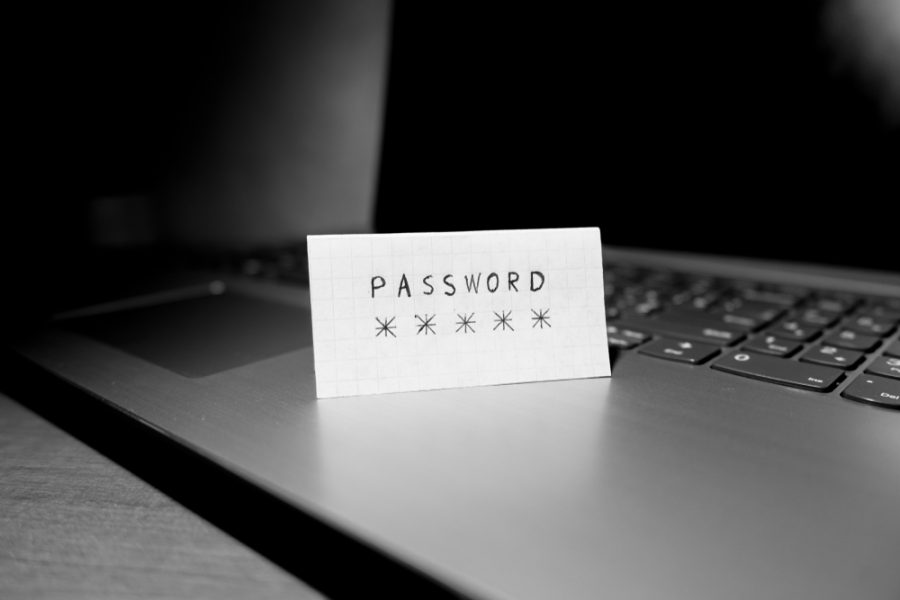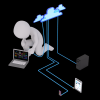5 Working from Home Safety Tips For Securing Business Data
As working from home becomes the new normal during the COVID-19 pandemic, home cyber security is arguably more important than ever. Securing your home wifi is one of the best ways to ensure that sensitive business information like emails and security credentials are protected from unauthorised access. In spite of this, many people still do not take their cyber safety at home seriously, with up to 15% of home routers currently unsecured or protected with weak or factory default passwords.
While protecting your data from potential cyber attackers may sound like a daunting task, it isn’t as complicated as it initially sounds. A number of simple cyber security measures can be easily implemented by users with minimal technical knowledge, and can go a long way in protecting your data online. To explain what these measures are and how to implement them, we’ve teamed up with the cyber security experts at ESET. From whether you should create a VPN at home to the best antivirus software, discover their top working from home security tips below.
-
Use a Virtual Private Network (VPN)
Using a VPN at home is one of the best ways to ensure that your data and online activity is protected when you are connected to your home WiFi. A VPN works by routing your device’s internet connection through your VPN’s private server, rather than the server belonging to your internet service provider (ISP). In this way, it guarantees a secure connection between your computer and your company’s network.
While it may sound complicated, learning how to set up a VPN at home is actually well within the capabilities of the average Australian, and can be a great first line of defence against potential cyber attacks.
-
Set up strong passwords
Good password hygiene is always important, but it is particularly essential when restricting access to confidential databases and sensitive business information. Still, a survey by CSO found that over 64% of Australians surveyed consider memorability – rather than security – as the most important factor when choosing a password. Worse still, only 54% of respondents said they prefer secure passwords over ones that are easy to remember.
Weak passwords represent “easy wins” for cyber attackers, and should be avoided whenever possible. We recommend choosing passwords that include at least 12 characters and combine uppercase and lowercase letters, numbers, and punctuation marks. As a general rule, we also recommend changing your password every 30-45 days, and avoiding using the same password twice.
-
Choose collaboration & video conference apps carefully
As video conferencing apps become an essential means of communication for remote workers, many cyber criminals are finessing their methods of attack on these platforms. Cyber attacks such as “Zoombombing” and unauthorised recording have emerged as popular modi operandi during this time, with users urged to exercise constant vigilance when using apps such as Zoom, Google Hangouts, and Skype.
To protect yourself and your team from such attacks, exercise caution when choosing a video conference call app and always password-protect all meetings.
-
Set up multi-factor authentication where possible
Maximise your protection against unauthorised database or account access by setting up multi-factor authentication (MFA) where possible. Sometimes also known as “two-factor authentication”, MFA is a login method that requires users to input both a password and a secure pin sent to a separate device via email, text message, or an authenticator app.
The secure pin acts as a means of verifying the identity of the person attempting to gain access to the database or account, and can ward off cyber attackers looking for an “easy win”. Many digital services now offer MFA as a default, or at least allow users to enable the setting manually.
-
Install an antivirus software
For best results, we recommend pairing all of the above working from home security tips with an antivirus software from a reliable provider. For example, protect yourself from email-borne threats at the server level by installing ESET Secure Business, and stay up to date with the latest cyber security threats and protection methods via ESET Threat Intelligence Service.
Using a platform or service that doesn’t allow MFA? Consider ESET Secure Authentication as a way to overcome this and allow central management from your browser, regardless of your business size.
Enhance your IT security at home during the COVID-19 pandemic
No matter the size of your team or what industry you work in, protecting your business information while working from home should be one of your top priorities. Our working from home safety tips can help you achieve this without huge costs or engaging an external contractor.
To learn more about their antivirus software and how it can protect you and your business during these uncertain times, contact ESET today!












